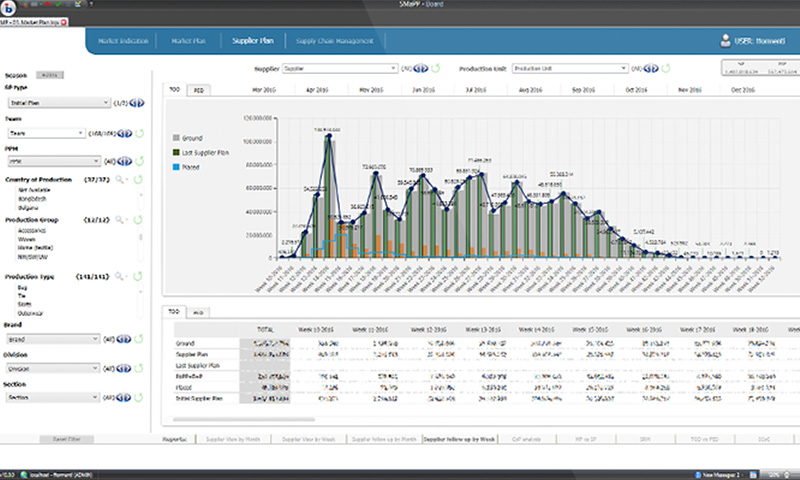Year 1 (Level 3) Modules
21st Century Management
This module will introduce you to various philosophies and theoretical concepts of management with a focus on 21st century developments and real-life scenarios that managers face. A range of themes will be explored including; social responsibility, ethics, globalisation, international cultures, technology and entrepreneurship.
Preparing for success at University
This module is designed to introduce you to university life. It will support you in exploring the university environment. It will also introduce you to the wide variety of academic skills needed to succeed at university and will support you in the development of these skills.
Principles of Business
This module aims to provide you with an introduction to the general environment in which businesses operate. Through studying this module you will develop an understanding of the contemporary debates on the nature and management of modern enterprises. The module covers internal and external aspects of business – such as people at work, marketing, financial information and operations.
Project based learning
In this module, you will work collaboratively with other students on a project that reflects an area of shared interest relating to the broad themes of Business, Law or the Social Sciences. You will have the opportunity to work as a small team to devise, design and plan a project relating to a topic of shared interest. In many aspects of life and work, teamwork and collaboration are the norm to solve real world-problems. This group-based project will allow you to develop a range of skills, including leadership skills, time-management, negotiation, communication, creativity, problem-solving and critical thinking skills. By investigating and responding to a complex question, challenge or problem, you and your group will acquire a deeper knowledge of your topic. The module will conclude with a conference, where your group’s project will be presented to the other groups in your class.
Year 2 (Level 4) modules
The Responsible Business
An introduction to responsible business practices with an emphasis on professional, moral, and personal responsibility. This module will encourage the development of personal and professional development skills and self-reflection as a personal development tool.
The Innovative Business
Exploring what it takes for a business to be innovative; you will be introduced to various theoretical views and opinions in the areas of creativity, innovation, and enterprise. You will be challenged to consider where, how and why ideas are generated; how ideas are implemented; and who and what type of people/teams develop innovative ideas.
The Sustainable Business
As awareness of climate change, resource scarcity, environmental impact and social inequality rises, businesses are increasingly being held accountable by consumers, governments, and other stakeholders. The module provides a holistic view of sustainability through a global lens where you will learn how the aforementioned factors impact the way we live and how businesses operate.
Learning how businesses adopt sustainable strategies across their various business functions such as marketing, supply chain and HR, you will also explore the macro and micro influences that impact these strategies. Overall, the module will help create awareness of corporate as well as individual social responsibility through use of international case studies.
The Digital Business
The first part of this module aims to provide a practical understanding of the digital business, the need for digital transformation to support innovation and to continue to have a competitive advantage in the marketplace. The various digital business models are explored along with the importance of digital capability.
The second part of the module introduces you to the information systems that support today's digital business. A range of information systems are examined including those that support the operations of the digital business, through to its sales and marketing functions. The importance of big data and business intelligence are introduced before examining how today’s digital business can apply business intelligence to develop new products and services along with improvements in efficiency and its business processes.
Year 3 (Level 5) modules
Customer Acquisition and Retention
Exploring the customer journey from prospect or enquiry to loyal customer or advocate, you will learn about the marketing strategies and tactics involved in attracting new customers and retaining them. Research suggests it can cost between 5 and 10 times as much to acquire a new customer as it does to retain an existing one, with the commonly quoted average being 7 times more expensive to acquire a new customer.
So why do so many companies spend more time chasing new customers than keeping existing ones? This is the paradox of customer retention and acquisition. This module will enable you to understand the role of customer acquisition and retention in designing contemporary marketing strategies for organisations. You will gain practical experience of planning marketing campaigns designed to attract, win, and retain customers.
The Professional Manager and Leadership
The aim of this module is to develop your understanding of management and leadership principles, and to explore the influence various leadership and management approaches have on key human resource management functions, including change management. Through the study of emerging leadership concepts, such as super leadership, you will develop an appreciation for the development of self as a method to support others in their development. Reflective practice underpins the module to support you in assessing your own approach to learning and development.
Operations and Project Planning
Exploring operations and supply chain management, as well as the fundamentals of project management, this module aims to give you the skills required to analyse contemporary issues facing business operations and supply chain. It also exposes you to the understanding of how businesses mitigate these issues to deliver goods and services of the quality and of the right quantity to satisfy customers’ need while adopting lean business approaches.
Equipping you with team working and communication skills in a project environment, you will be able to define, plan and control projects through their life cycle, while balancing competing performance objectives and managing competing stakeholder requirements. Detailed study of management tools such as critical path analysis and PERT will be undertaken.
Managing Finance and Accounts
The aim of this module is to provide an introduction of a range of financial and accounting skills to business students, to help their understanding and managerial decision-making skills. You will evaluate the organisation’ financial statements, identify the principles for setting and managing budgets and understand finance within the organisation. This module has been designed to enhance your confidence and credibility in financial management, which will translate into improved management skills.
Year 4 (Level 6) modules
The Strategic Business
The strategic business module will equip you to make strategic decisions at both a corporate and functional level. You will develop the skills required to evaluate the success of implemented strategy which will inform decision making at a corporate and functional level.
Organisational Behaviour
Exploring current knowledge around behaviour in contemporary organisations, this module explores areas from an individual employee and manager perspective. You will engage with topics such as identity, power, gender, motivation, change, and ethics, from a critical, and in some instances, post-structuralist perspective. The aim of the module is to equip you with a fundamental grounding in organisational behaviour to help you develop into a manager of the future.
The Professional Project
On this independent study unit, you will draw learning from previous subjects, focusing on your key strengths, in the production of a business artefact. Alongside the artefact, you will develop a written critical reflection, which is designed to explain your choice of artefact and reflect on the process of its production and dissemination.
The Business Communicator
The ability to effectively communicate with all internal and external stakeholders is key for business leaders. The business environment is in constant flux, and it is important to be able to navigate this space, whilst building relationships and networks. This module will explore key communication and human resources theories and provide students with the tools to assess and develop their own communication skills.
We are currently reviewing our foundation course to enhance student learning and success. Course details may be subject to updates. Please keep an eye on our pages for updates.


/prod01/wlvacuk/media/departments/digital-content-and-communications/images-18-19/iStock-163641275.jpg)
/prod01/wlvacuk/media/departments/digital-content-and-communications/images-2024/250630-SciFest-1-group-photo-resized-800x450.png)
/prod01/wlvacuk/media/departments/digital-content-and-communications/images-18-19/210818-Iza-and-Mattia-Resized.jpg)
/prod01/wlvacuk/media/departments/digital-content-and-communications/images/Maria-Serria-(teaser-image).jpg)
/prod01/wlvacuk/media/departments/digital-content-and-communications/images-2024/241014-Cyber4ME-Project-Resized.jpg)
/prod01/wlvacuk/media/departments/digital-content-and-communications/images-18-19/210705-bric_LAND_ATTIC_v2_resized.jpg)





